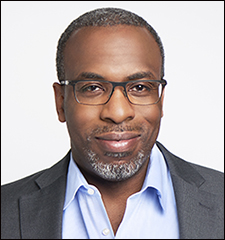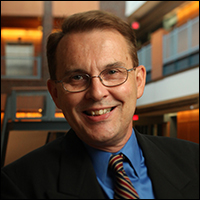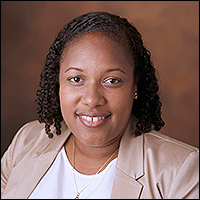The School of Engineering has launched a new targeted, community-based approach to address academic and social factors that affect the success of students from underrepresented groups.

Fueled by a gift of $1 million from Vanderbilt Trustee Corey E. Thomas, BE’98, the initiative includes a range of programs to foster a healthy pipeline of diverse engineers. Among them are a month-long summer residential program for incoming first-year students; targeted tutoring for students who do not do well on early exams in introductory chemistry and math courses; and individual and group peer support and alumni networks.
The goal, Thomas said, is to reduce the friction that it takes to succeed academically, personally, and professionally.
“We have great talent, we have a great university, and we have great programs,” said Thomas, who is Chairman and CEO of Rapid7, a cybersecurity technology company. “We want to set up an experience so people have less friction and more tools to navigate their own path to success.”
The Underrepresented Student Program will be highlighted as part of Vanderbilt Giving Day on April 5. The program is funded now by the leading gift from Thomas and support from the dean’s operating budget. Additional philanthropic gifts are sought for current use and to sustain and enrich programming over time. In total, the goal is to raise $10 million in endowment to support the program in perpetuity.

“This comprehensive effort addresses lingering gaps in the success and attrition of engineering students from underrepresented groups,” said Philippe Fauchet, the Bruce and Bridgitt Evans Dean of Engineering. “It is crucial that our engineering students have competitive GPA’s to be successful in securing employment at top companies in their fields.”
“Corey is committed to efforts that help improve the success of our students, particularly underrepresented minority students,” Fauchet said. “We are grateful for his investment in a unique program that seeks to support students in finding their paths to success.”
Julianne Vernon, associate dean for academic success, oversees the program. Components are being rolled out, evaluated, and modified based on student feedback, participation, and performance. Fall Early Start Transition, dubbed FESTIVAL, for example, began last year virtually with a small group of first-year students from underrepresented groups, which includes first-generation college students and students with high financial need, and continues this summer for 20 members of the Class of 2026. Plans are in place to ramp up capacity in subsequent years.

FESTIVAL is a month-long, residential summer transition program that includes STEM coursework and review, professional development skills to support a smooth transition to college life, and a peer community support network. FESTIVAL participants have no out-of-pocket expenses and receive a stipend to make up for lost earnings from a summer job during the full-time program.
One participant in the Class of 2025 said the programming was “super helpful” with baseline chemistry knowledge. “I took chemistry in my sophomore year of high school and had forgotten a lot since then, so learning for even for just a few weeks was a great refresher.” The pace of CHEM 1601 is much faster than I am used to, so it makes learning much easier to not have to relearn everything so quickly.”
A partnership with Metro Nashville Public Schools also is underway, bringing engineering students to young learners in grades three through six also to introduce engineering as an engaging field of study and potential career path with varied options.
The initiative aims to create connections and build community to position students from underrepresented groups for success in their first year and beyond. Programming is paced to grow with the Class of 2025, adding components for networking, internships, summer research opportunities, and later, jobs and graduate study. The program leverages FESTIVAL, tutoring, peer networks, and early introduction to affinity/identity groups that include campus chapters of the National Society of Black Engineers, the Society of Hispanic Professional Engineers, the Society of Women Engineers, and Women in Computing.
“We are focusing on success, and success can mean a number of different things,” Vernon said. “I want to make sure that students feel comfortable and supported in this community, and that there are no boundaries or hurdles in their way to help them get a better grade.”
The idea, Thomas said, is to create “an inclusive experience” that recognizes that some students with similar GPAs and AP coursework do not start their undergraduate Vanderbilt experience on the same footing and face varied degrees of friction in an already demanding engineering curriculum.
“We want them to come in early, set up, and get acclimated,” he said. “The goal is to have the same access and support as everyone else, while getting their specific needs met, and have highly successful experience.
“You can decrease friction and provide ways to process it, and just because there is friction doesn’t mean it is intentional,” Thomas said.
Click here to support the Underrepresented Student Program.
Contract: Brenda Ellis, 615 343-6314
brenda.ellis@vanderbilt.edu